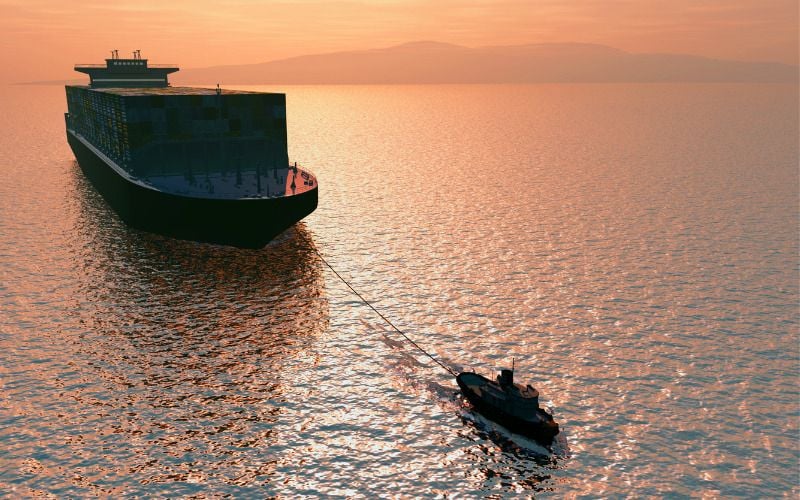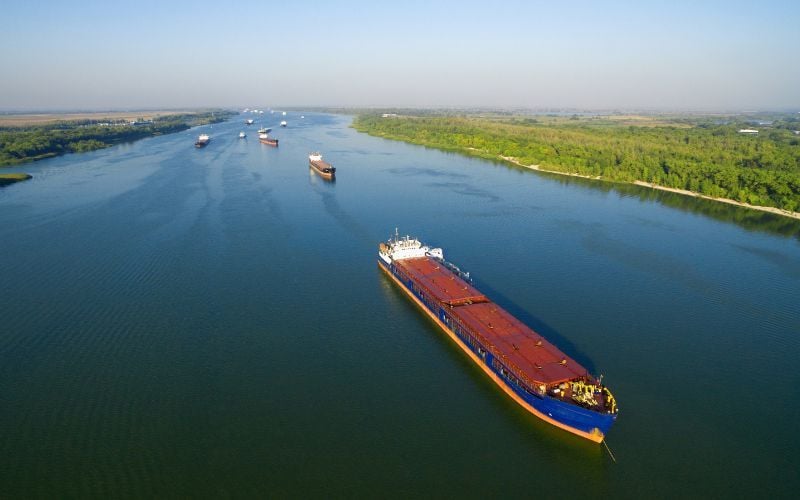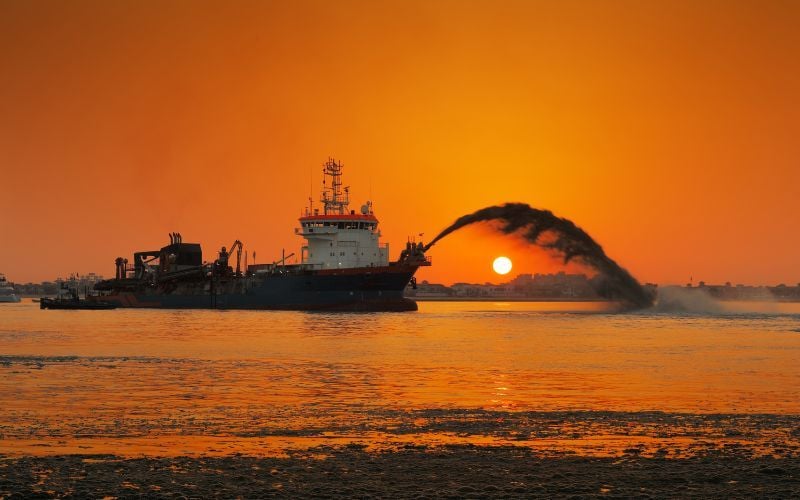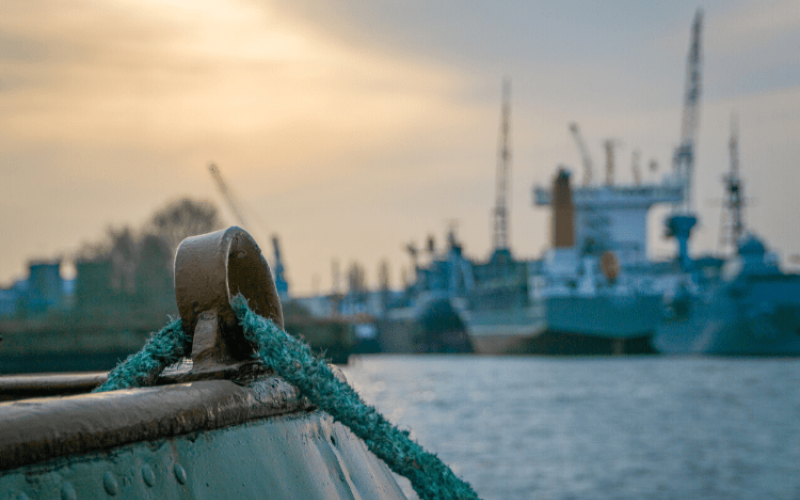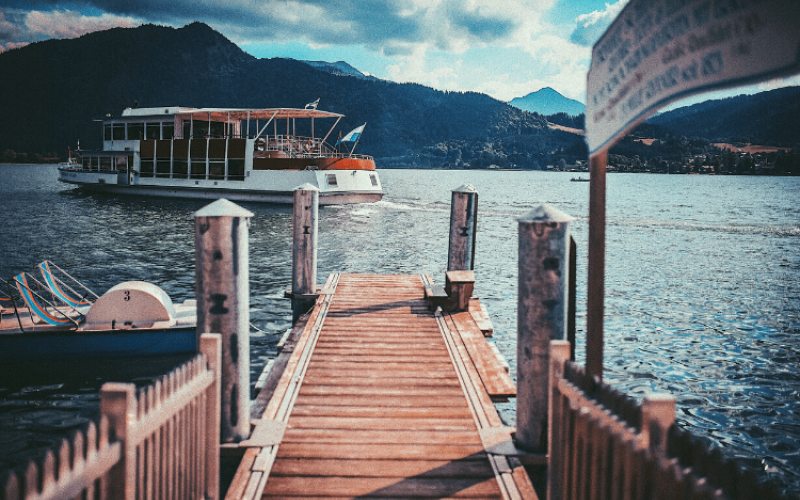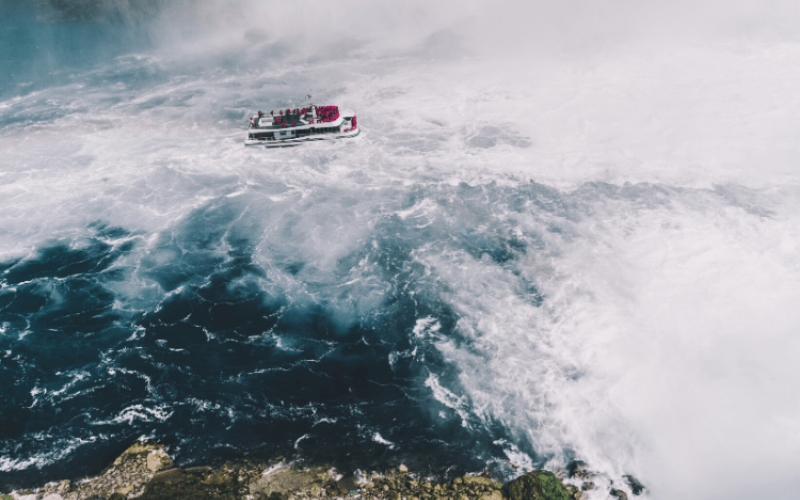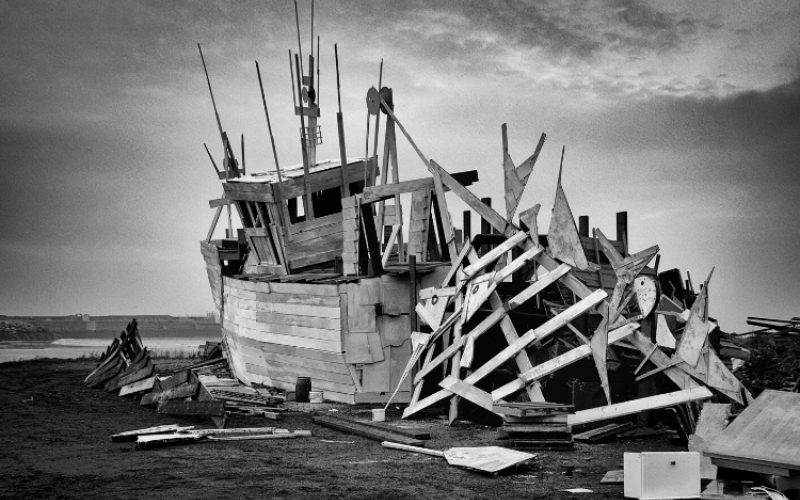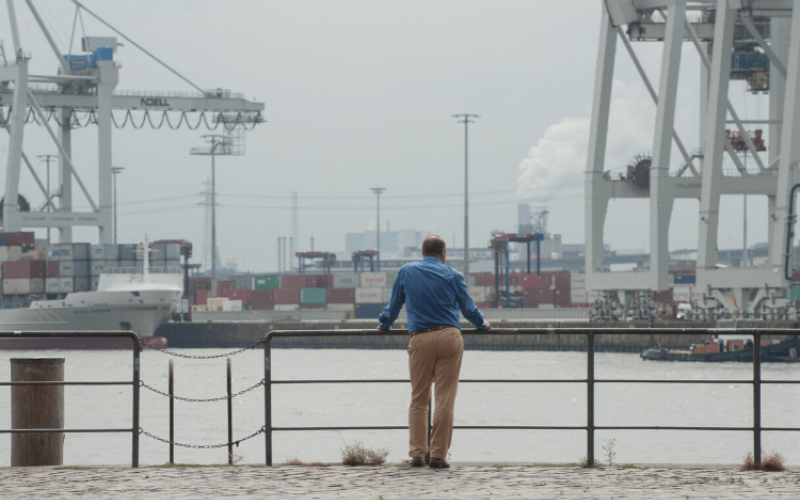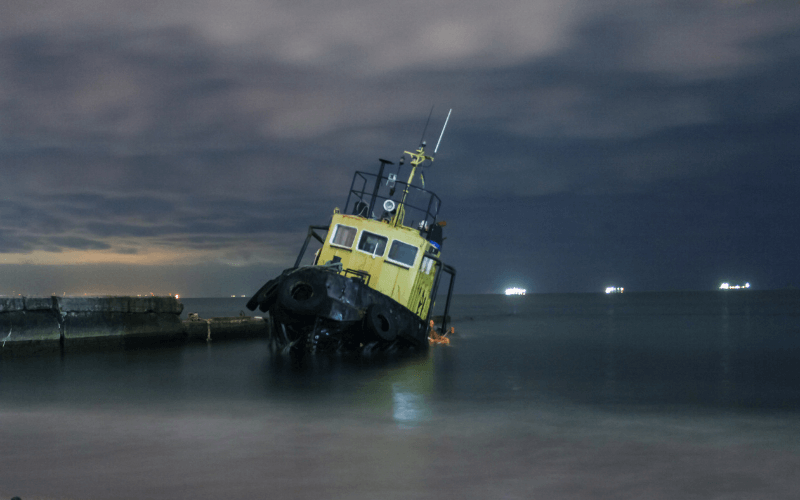Maritime Accidents on International Waters
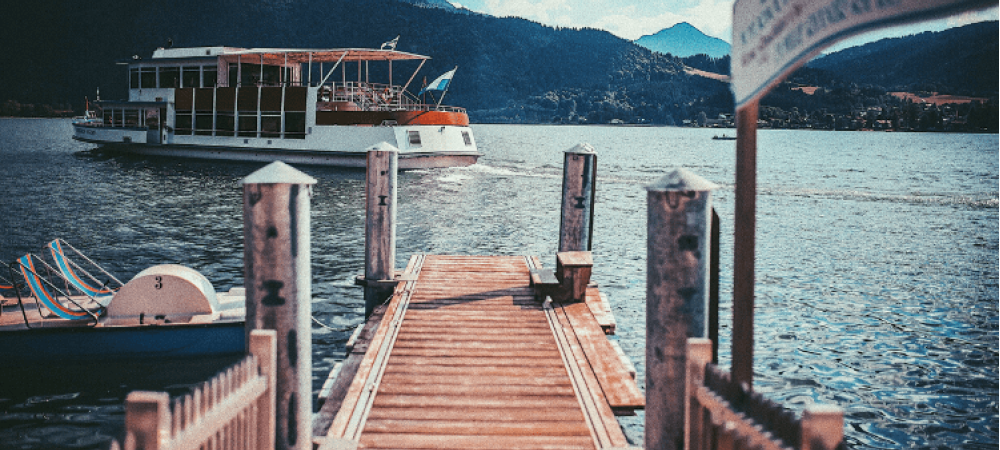
Currently, 5,000 seamen are employed in the United States, according to Zippia. These individuals face various potentially dangerous situations in their day-to-day activities, working in jobs excavating natural resources, working on pipelines, doing scientific research, working for fisheries, or working on cruise ships.
Unfortunately, many of these jobs involve hazards, leading to accidents that may cause severe injuries, leading to permanent disability, pain and suffering, or a loss of income. Contrary to what many believe, US law doesn’t end with our borders. There are strict maritime laws governing what can and cannot happen out at sea or even on the seabed or an estuary. That means if you are injured in a dredge accident or another type of accident, you may be entitled to compensation.
The knowledgeable and experienced personal injury lawyers at Montagna Maritime Law will help you discover your rights after an injury out at sea. To obtain a free consultation, call our law firm today at (757) 622-8100.
Is There Law in International Waters?
Maritime law is a private body of law focusing on governing relationships between individuals and businesses. Essentially, it oversees the shipping business and oversees both criminal and civil cases with one or more individuals involved in a legal matter.
International waters are governed by maritime law, and therefore, in the case of an accident or crime occurring offshore, these laws determine how a case proceeds and the amount of compensation. As long as the ship is registered with the US, it is subjected to US law.
These rulings take place in a standard court proceeding, but wading through maritime law and determining whether it has jurisdiction in your particular situation can be confusing. While understanding what typically happens in maritime proceedings is an important first step, your best bet is to speak to a maritime lawyer to receive high-level support, along with attention to you and your situation.
Where Do International Waters Start?
When someone is in international waters and too far away from the shore of any country or state, maritime law comes into play. The jurisdiction of maritime law and international law are not always perfectly defined or understandable. Generally, these laws rule over international locations where there is no land within 20 miles of the ship or person on the open sea.
The United Nations Convention on the Law of the Sea, also referred to as the Law of the Sea Convention or the Law of the Sea Treaty, helps regulate the rights of coastal states. These rights are balanced with access to resources outside state control and freedom of navigation. As a result, several different maritime zone “baselines” are drawn.
Territorial Waters
Territorial waters, or territorial seas, are the most straightforward zones. This means coastal states have jurisdiction over specific areas, including the seabed, subsoil, and airspace above it.
Contiguous Zones
Maritime law stipulates states are allowed to establish a “contiguous zone”. This begins at the outer edge of the territorial sea to no more than 24 nautical miles from the baseline. Unlike territorial waters, contiguous zones only permit jurisdiction over the ocean’s surface and floor and do not include airspace rights.
International Waters
Waters located outside any nation’s territorial waters are considered to be international waters, also referred to as “open seas” or “high seas.” No state governs these waters.
However, recent rules permit an exclusive economic zone (EEZ). States are allowed to claim an EEZ extending 200 nautical miles from their baseline. The legal ecosystem relating to maritime law is complex. Skilled maritime attorneys fully understand any international treaties and can determine which law covers your injury.
When Happens If I Am Injured on the High Seas?
In many personal injury cases, legal jurisdiction falls to the country that owns or operates a vessel. Every state has its own regulations. When it comes to US vessels, if it flies the US flag, that ship is governed by US maritime law if on foreign or international waters, regardless of where it is. Depending on your injuries, you may be covered by the following laws and statutes.
The Jones Act
As one of the primary laws guiding US adherence to maritime law, the Jones Act entitles injured seamen to specific rights and compensation. Injured workers must demonstrate their employer’s negligence caused their injuries, but the burden of proof is not as stringent as other types of injury cases. Victims are also permitted to pursue negligence claims against shipowners.
The Longshore and Harbor Workers’ Compensation Act (LHWCA)
The LHWCA expands the groups of injured workers who can pursue recovery for injuries. The Jones Act applies strictly to certain classes of maritime employees, but the LHWCA covers all workers who are employed in a maritime occupation, including harbor workers, longshoremen, stevedores, shipbuilders, ship breakers, mechanics, and divers, to name common jobs in this industry.
The Death of the High Seas Act (DOHSA)
DOHSA provides payments to surviving families of maritime workers killed on the job. Accidents caused by unseaworthy vessels, faulty equipment, or other negligence leading to an accident occurring more than three miles from U.S. shores are eligible under DOHSA.
Since international waters have no specific government, international water law is often set by individual countries. This means, as a US citizen, you do have rights under US law.
What Should I Do After an Injury on International Waters?
If you suffer an injury on international waters, it is important you report your injury immediately and seek medical attention right away. The ship is responsible for reporting your injury to the U.S. Coast Guard, so be sure to report it immediately to the captain, employer, or senior officer aboard your vessel.
After reporting an incident, make certain your captain files your injury on the ship log. While federal regulations allow up to a 7-day window to report a work-related injury under the Jones Act, it is best to report your injury as soon as possible.
Do I Qualify for Jones Act Compensation?
Under maritime law, a seaman is a worker with a job-related connection with a particular ship or shipping company. To qualify under the Jones Act, the worker must spend a minimum of 30% of their working time with this specific ship or fleet of ships. Furthermore, the vessel must be in navigation. This means, the ship must be completely built and is actively being utilized for work purposes.
How Do I Win a Jones Act Lawsuit?
To win a Jones Act lawsuit, it must first be determined if you qualify and, if so, your attorney can work to present the following in your case.
Negligence
You must prove which party (or parties) were responsible for your injuries and any conditions leading to the accident.
Causation
It must be proven that irresponsible acts directly caused a victim’s injuries.
Compensation
Seamen must have accurate records of any losses due to the injury, including medical records, lost wages, loss of future wages, and any other damages to pursue compensation.
When Happens If I Got Injured on a Ship Flying Multiple Flags?
The United Nations Convention on the Law of the Sea (UNCLOS) steps in and decides jurisdiction. Depending on the case’s circumstances, there are various other organizations that may get involved. This could include the United Nations, the International Maritime Organization (IMO), or even law enforcement from a foreign government. In certain situations in maritime law, the coast guard of the country nearest the location will be called on to help and enforce laws.
Other organizations may become involved in the process if the injured party is near enough to a country with different policies that can affect the case. If the issue is administrative or regulatory, a standard court case may not occur. The IMO generally enforces maritime law and ensures all safety protocols are followed. As a result, different authorities may govern the issue and proceed with foreign policies.
If you find yourself in a situation while working offshore, one of our maritime lawyers will help you to understand the role of each organization that’s involved and how they could affect your case. There are significant differences if you are involved in a civil matter versus a criminal matter, which is yet another thing that your lawyer will help you to understand.
When Should I Hire a Maritime Lawyer?
Laws governing the high seas are complicated; however, losing out on injury compensation can be devastating. Working with a skilled attorney who understands the intricacies associated with maritime law in Virginia and North Carolina, helps you obtain the best possible settlement. Your attorney can help you determine if you qualify under the Jones Act, advise on which employer documents to sign to avoid waiving your right to file a claim, and help you to file the actual claim.
There are International Waters Laws Governing Your Injuries
Contrary to popular belief, the high seas are not a lawless place. There are consequences for illegal activity, and employers and other at-fault parties can and should be held responsible for any negligence. Injured workers have protections under universal jurisdiction, national jurisdiction, or one of the various other maritime zones.
Montagna Maritime Law has extensive experience in the Jones Act and other types of personal injury cases. To obtain a free case evaluation, contact our law office at (757) 622-8100 or fill out our online contact form. Our firm also has bilingual staff members to assist maritime workers who speak Spanish. If you or a loved one was injured in a maritime accident, contact us today!
"*" indicates required fields




